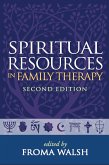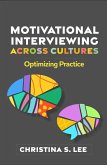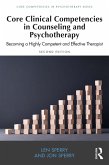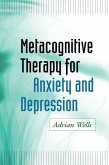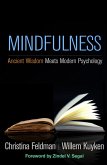"Reading the book Spiritual Competency in Psychotherapy was like having a series of extended conversations with a good friend about what really matters in psychotherapy and life. Philip Brownell generously shares his experiences, insights, knowledge, questions, and struggles about spirituality and psychotherapy in this book. By the time we finished reading it, we felt grateful for the gems of insight we discovered... Brownell is honest and authentic throughout his book as he portrays how religion and spirituality can be both a source of emotional distress and a powerful healing resource. As readers of the book enjoy their own ìconversationsî with Brownell, we are convinced they will be rewarded with rich insights into how spirituality can be integrated into psychotherapy in a mature, competent, and ethical manner."--P. Scott Richards and Peter W. Sanders, PsycCRITIQUES
Historically, mental health clinicians were trained to refer clientsí spiritual issues to pastoral professionals. However, the current requirement for competence with diverse cultural concerns in counseling and psychotherapy may include those of a religious nature. Using a nonsectarian approach that can complement a wide range of psychotherapeutic orientations, this practical guide helps therapists and counselors gain competence in working with clients who are dealing with spiritual issues in their lives. Written by an experienced clinical psychologist who is also an ordained clergyman, the book describes how to work effectively and ethically with clients of all faiths who present spiritual questions, problems, and unfinished spiritual or religious business.
The book offers counselors and psychotherapists who lack experience or comfort in dealing with spiritual issues (especially those who have not worked out their own approaches to spirituality) ways of understanding the nature of spirituality. It orients clinicians to respectfully help clients who have spiritual and religious issues. It provides basic information about Western and Eastern spiritual worldviews and provides a basic framework for competently addressing spiritual issues for clients of any faith. The book discusses four ways in which spirituality can inform psychotherapy, including spiritual work in the context of a therapeutic relationship, in the interpretation of experience, and in the movement to enactment. It addresses specific issues therapists may encounter such as clientsí uncertainties in faith, struggles with oppressively rigid faith communities, grief and loss, and abuse at the hands of religious community leaders. Specific recommendations for providing therapeutic help as well as case examples drawn from actual practice provide practical guidelines for enhancing spiritual competency in psychotherapy.
Key Features:
Historically, mental health clinicians were trained to refer clientsí spiritual issues to pastoral professionals. However, the current requirement for competence with diverse cultural concerns in counseling and psychotherapy may include those of a religious nature. Using a nonsectarian approach that can complement a wide range of psychotherapeutic orientations, this practical guide helps therapists and counselors gain competence in working with clients who are dealing with spiritual issues in their lives. Written by an experienced clinical psychologist who is also an ordained clergyman, the book describes how to work effectively and ethically with clients of all faiths who present spiritual questions, problems, and unfinished spiritual or religious business.
The book offers counselors and psychotherapists who lack experience or comfort in dealing with spiritual issues (especially those who have not worked out their own approaches to spirituality) ways of understanding the nature of spirituality. It orients clinicians to respectfully help clients who have spiritual and religious issues. It provides basic information about Western and Eastern spiritual worldviews and provides a basic framework for competently addressing spiritual issues for clients of any faith. The book discusses four ways in which spirituality can inform psychotherapy, including spiritual work in the context of a therapeutic relationship, in the interpretation of experience, and in the movement to enactment. It addresses specific issues therapists may encounter such as clientsí uncertainties in faith, struggles with oppressively rigid faith communities, grief and loss, and abuse at the hands of religious community leaders. Specific recommendations for providing therapeutic help as well as case examples drawn from actual practice provide practical guidelines for enhancing spiritual competency in psychotherapy.
Key Features:
- Provides practical guidelines for counseling clients about a variety of spiritual issues
- Includes approaches that can be incorporated into a wide range of psychotherapeutic modalities
- Helps clinicians to understand clientsí spiritual perspectives in order to suggest effective interventions
- Addresses specific spiritual or religious concerns that clients often make known, providing illustrative case examples
- Presents an open window through which the reader might gaze upon spiritual life so as to grasp its nature and more fully understand religious and spiritual people
Dieser Download kann aus rechtlichen Gründen nur mit Rechnungsadresse in A, D ausgeliefert werden.



